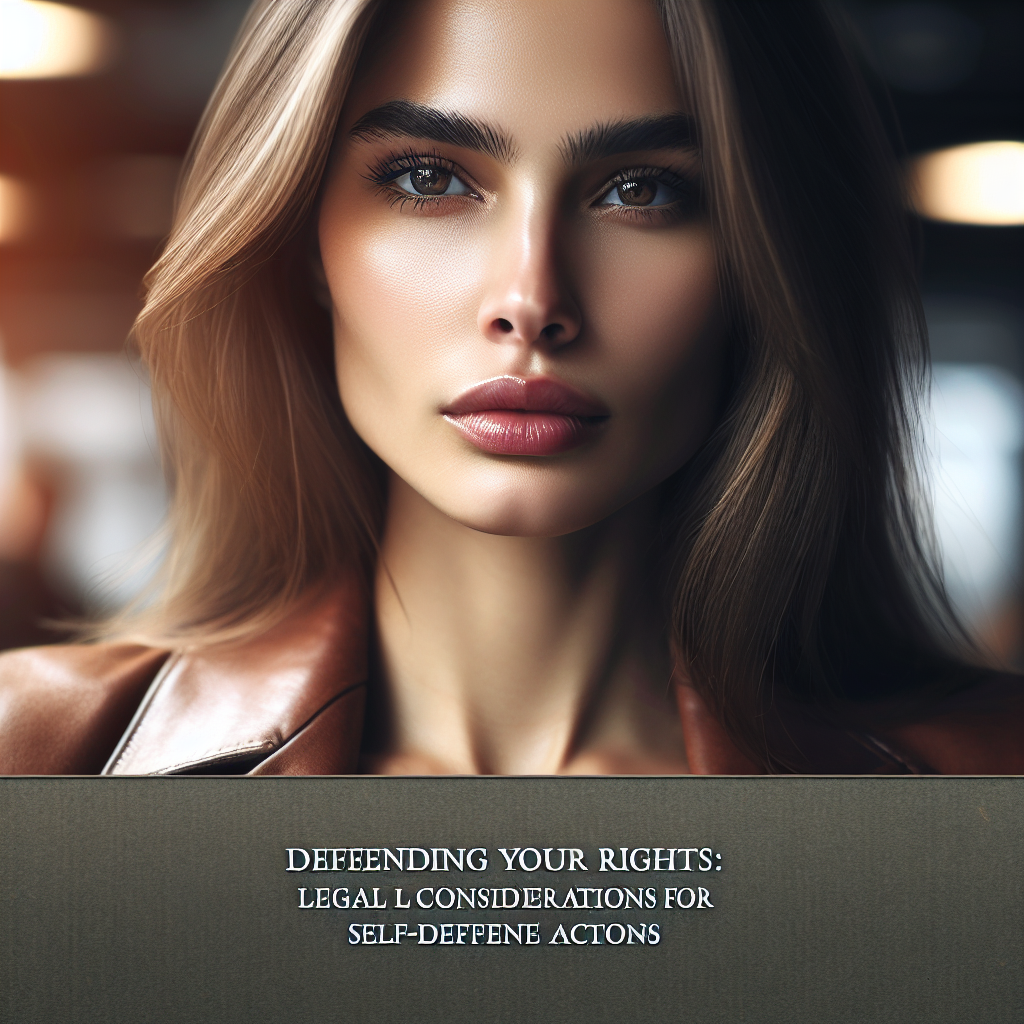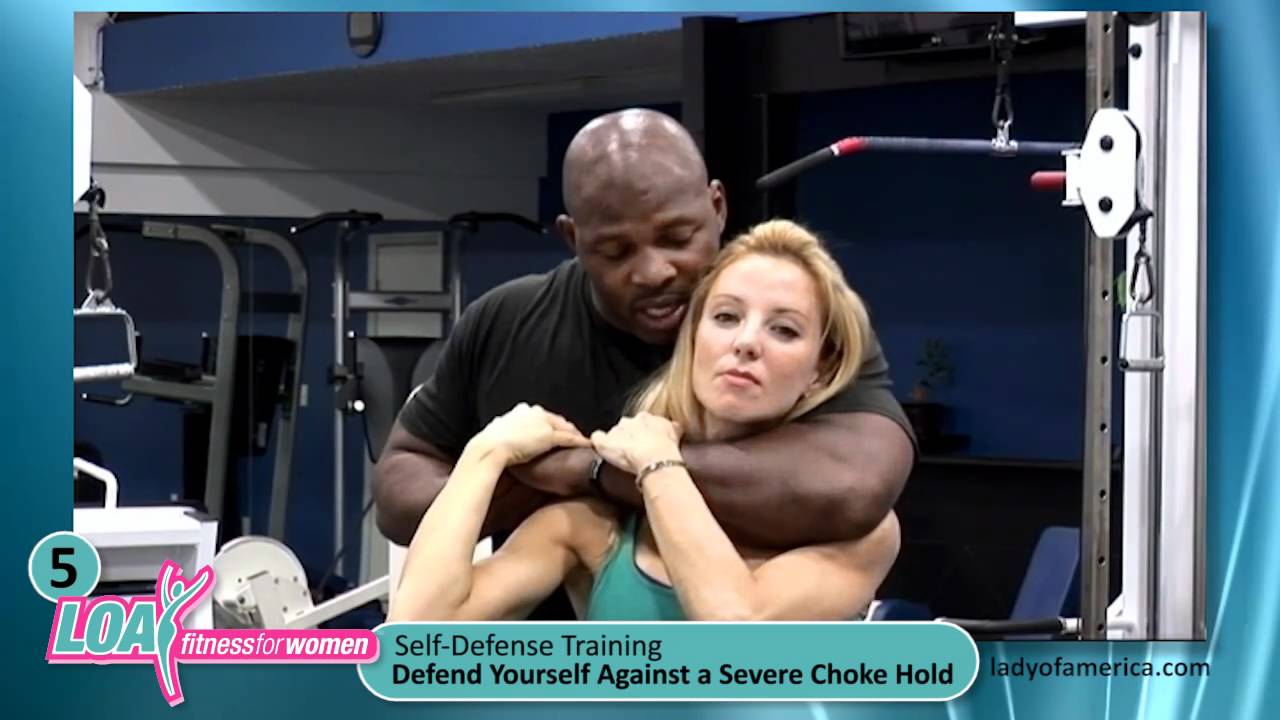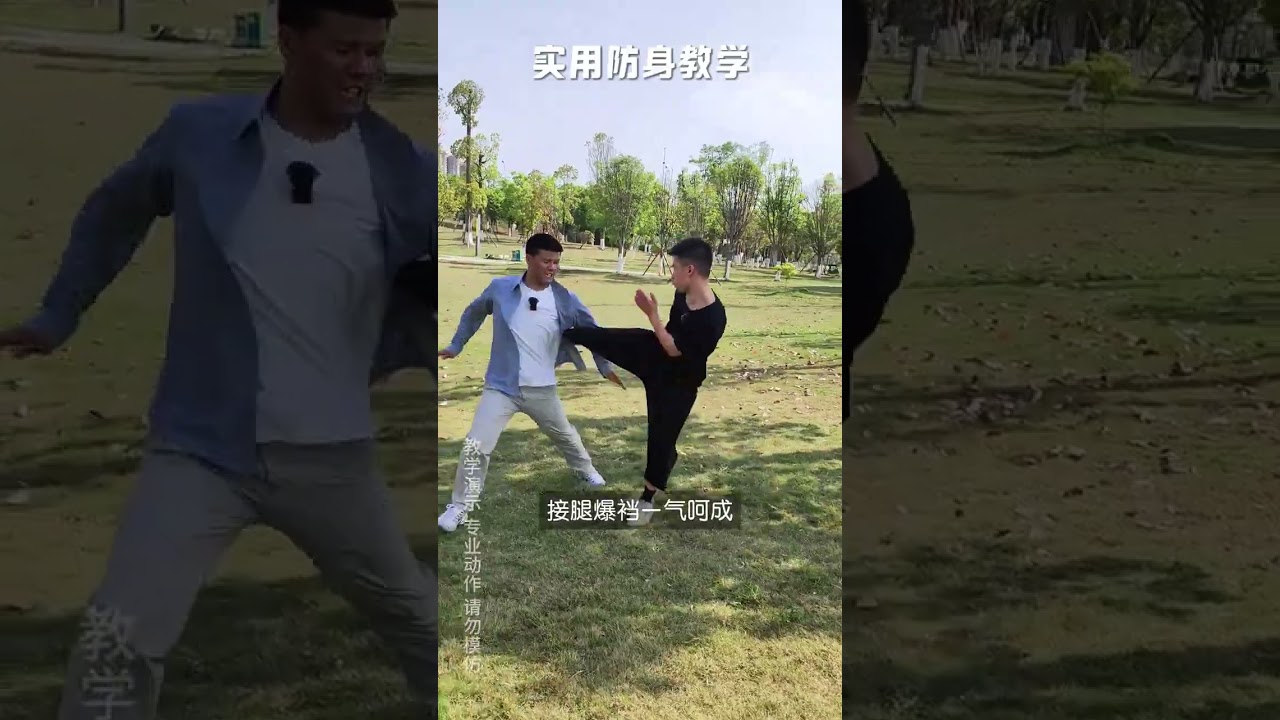Womens Self Defense
"Defending Your Rights: Legal Considerations for Self-Defense Actions"

Self-defense is a fundamental legal concept that allows individuals to protect themselves from imminent harm. However, the application of self-defense laws can be complex and varies significantly by jurisdiction. This article explores critical legal considerations when evaluating self-defense actions, helping individuals to understand their rights and responsibilities.
Understanding Self-Defense
Self-defense refers to the right to use reasonable force to protect oneself from physical harm. This principle is rooted in both state and common law, emphasizing that individuals should not be required to retreat from danger when the threat is immediate and unavoidable. The key elements of self-defense generally include:
- Immediacy of Threat: The threat must be imminent, meaning that there is a genuine risk of being harmed.
- Proportionality: The force used in self-defense should be proportional to the threat faced. For example, using deadly force may be justifiable only in response to a threat of death or serious bodily harm.
- Reasonableness: The actions taken in self-defense must be reasonable from the perspective of an average person in the same situation.
Types of Self-Defense Claims
Legal frameworks often recognize two primary types of self-defense claims:
1. Personal Self-Defense
This claim applies when an individual uses force to protect themselves from an attack. It is crucial to prove the immediacy and severity of the threat to justify the use of force.
2. Defense of Others
Individuals may also claim self-defense if they are acting to protect someone else from imminent harm. The same legal principles apply: the perceived threat must be immediate, and the response must be proportional.
Legal Considerations
A. Jurisdictional Variations
Self-defense laws are influenced by state legislation, which can lead to significant differences in how these laws are enforced. For example:
- Stand Your Ground Laws: Some states have enacted laws that allow individuals to use force without the duty to retreat, even in public spaces.
- Castle Doctrine: This legal doctrine provides individuals with the right to use force, including deadly force, to protect themselves within their own homes.
These laws can dramatically affect the legal outcomes of self-defense cases, and understanding local legislation is essential.
B. The Role of Evidence
In self-defense cases, evidence plays a crucial role in substantiating the claim. This may include:
- Witness Testimonies: Eyewitness accounts can provide corroboration of the threat faced and the reasonableness of the response.
- Surveillance Footage: Video evidence may clarify the context of the encounter, portraying the aggressiveness of the threat.
- Physical Evidence: Injuries, weapons involved, and other physical evidence can also help establish the circumstances surrounding the incident.
C. Aftermath and Legal Repercussions
Even when self-defense claims are legally justified, individuals may still face legal challenges. This could include:
- Criminal Charges: Law enforcement may still charge individuals with crimes related to the incident, which may require a legal defense.
- Civil Liability: Victims of the encounter may pursue civil lawsuits for damages, complicating matters for the individual invoking self-defense.
Conclusion
Defending your rights through self-defense is a nuanced area of law that requires a careful understanding of local regulations and legal principles. Individuals faced with a potentially dangerous situation should be aware of their rights and the legal ramifications of their actions. Consulting with legal professionals who specialize in self-defense laws is crucial to navigating this complex landscape. By understanding the core principles of self-defense, individuals can better protect themselves while minimizing the risk of legal repercussions.
Womens Self Defense
Uniting for Justice: Community Organizations Push for Stronger Self-Defense Legislation

Uniting for Justice: Community Organizations Push for Stronger Self-Defense Legislation
In recent years, the dialogue surrounding self-defense laws has grown more complex and critical, highlighting the need for a re-examination of legal frameworks that govern individual conduct during life-threatening encounters. As issues of personal safety, inequality, and the right to self-defense collide, community organizations across the nation are uniting to advocate for stronger self-defense legislation that not only protects individuals but also addresses systemic injustices.
The Current Landscape
Self-defense laws vary widely from state to state, resulting in a patchwork of regulations that can often leave marginalized communities under-protected. Some states have “Stand Your Ground” laws which give individuals the right to use force without the duty to retreat when threatened. Meanwhile, others adhere to more traditional “Duty to Retreat” principles, requiring individuals to avoid confrontation when possible. This inconsistency can lead to unintended consequences, particularly for people of color and those from lower socioeconomic backgrounds, who might be disproportionately criminalized in self-defense situations.
The Call for Reform
In response to these disparities, community organizations are rallying for legislative change. Groups focused on social justice, civil rights, and public safety are coming together to craft proposals aimed at reforming self-defense laws. These advocates argue that it is essential not only to ensure the right to defend oneself but also to create an equitable legal framework that reduces bias in how self-defense cases are prosecuted and adjudicated.
Key Proposals
-
Enhanced Training and Awareness: One significant proposal advocates for mandatory training in self-defense laws for both civilians and law enforcement. Understanding the legal implications of self-defense can empower individuals to make informed decisions during high-pressure situations.
-
Bias Review Measures: Community organizations are pushing for legislative measures that require law enforcement to undergo training on implicit bias and the historical context of self-defense laws. This could mitigate the risk of racial profiling and ensure that self-defense claims are evaluated fairly.
-
Legal Support and Resources: Providing legal resources and support for individuals who defend themselves can help level the playing field. Advocates suggest establishing funds or programs that can assist with legal fees for those who may not otherwise afford representation in self-defense cases.
- Community Dialogues: Engaging community members in discussions about self-defense can foster better understanding and cooperation. Organizing community forums to discuss individual rights, responsibilities, and personal safety can build trust and provide critical information.
Building Coalitions
Collaboration is at the heart of this movement. Organizations with differing focuses—such as gun rights advocates, domestic violence shelters, youth mentorship groups, and racial justice organizations—are finding common ground in the belief that self-defense is a fundamental right that must be accessible to everyone.
These coalitions are also crucial in countering misinformation about self-defense laws and their implications. By working together, they can foster a more informed public debate and promote legislation that is both just and effective.
The Path Forward
As these community organizations continue to push for stronger self-defense legislation, the conversation around justice, equity, and individual safety remains crucial. Advocates emphasize that any reform must be carefully crafted to protect the rights of all individuals while also addressing the underlying societal issues related to violence and safety.
In conclusion, the united effort of community organizations in advocating for stronger self-defense legislation reflects a growing commitment to justice that transcends traditional divides. By prioritizing equity and informed discourse, these groups are not only advocating for change in the law but are also championing the dignity and safety of every individual in society. The path to reform may be arduous, but the collective action of committed organizations can drive meaningful change in ensuring that self-defense rights are upheld for all.
Womens Self Defense
Self Defense Training For Women In A Bar Scene Or Walking The Mall — Lady Of America

http://www.ladyofamerica.com This is the last of the Lady of America Fitness for Women self defense training videos. This video is …
source
Womens Self Defense
One Punch Man #Selfdefense #Womens selfdefense #Defeat the enemy with one move #Selfdefens
-

 Womens Self Defense11 months ago
Womens Self Defense11 months agoNew Legislation Empowers Women to Defend Themselves
-

 Self Defense News1 year ago
Self Defense News1 year agoShe was convicted of killing her abusive boyfriend. Now a Maple Grove woman is home awaiting a new trial.
-

 Self Defense News1 year ago
Self Defense News1 year agoSelf-Defense for All: The new Gracie Jiu-Jitsu Pasadena is for everyone | Online Features
-

 Womens Self Defense1 year ago
Womens Self Defense1 year agoTop 5 Self-Defense Techniques Every Woman Should Know
-

 Womens Self Defense7 months ago
Womens Self Defense7 months agoUnderstanding State-by-State Variation in Self Defense Laws
-

 Womens Fitness1 year ago
Womens Fitness1 year agoXtreme Bodyweight HIIT (Lots of Jumping!) | Joanna Soh (Fio Series)
-

 Womens Preparedness1 year ago
Womens Preparedness1 year ago10 essential skills for surviving in the great outdoors
-

 Womens Preparedness1 year ago
Womens Preparedness1 year agoEmpower Yourself: A Guide to Female Survival Planning






